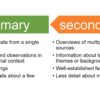Nursing is a truly selfless practice, with nurse practitioners making a difference to the lives of all the patients they come into contact with across their careers.
What’s more, becoming a nurse is more accessible than you’d think. A relatively fast pathway is by studying a two-year Associate Degree in Nursing (ADN) program. You may even be able to focus on a particular area of study within this program, with degrees like the ASA college nursing program offering an outstanding level of flexibility.
After graduating from either an ADN or a Bachelor of Science in Nursing (BSN), you would need to pass the National Council Licensure Examination (NCLEX-RN), and you would be ready to go!
But why exactly should you go into nursing? In this article, we’ll break down the top six benefits of this career, demonstrating the benefits of the nursing career. You’ll be packing your bags and heading to nursing school before you know it.
Job Stability
Industry experts have predicted that A.I. automation could replace up to 40% of all jobs in the next 15 years. Nursing, unsurprisingly, is not one of the jobs on this list. Due to the high skill level nurses need and their continually changing tasks, nursing is very much a human-led career path. That’s not to mention the emotional side of nursing, with actually caring for patients being an essential part of the job.
On the contrary, nursing is actually a career that’s predicted to increase in demand over the next ten years. From 2020-to 2030, the U.S. Bureau of Labor indicates that demand for nurses will increase by 9%. That means that your career longevity is certified with this career path, promising you a long and lucrative career long into the future.
Attractive Salary
No matter how much we may love our jobs, a job is a job, meaning there is going to be a salary involved. Within the nursing field, a registered nurse receives an attractive salary, on top of all the other benefits.
Currently, the average salary of a registered nurse is $75,330 a year, working out at around $36.22 per hour. This is almost $20,000 more a year than the average salary of workers in America, as calculated by the Bureau of Labor Statistics (BLS).
If you’re looking for a career that affords an excellent salary, and options to push this salary even further with additional education or training, then this is a wonderful path for you.
Travel Opportunities
While not the first thing to mind when you imagine the healthcare industry, there are many healthcare businesses that can help fill local, national, or even international shortages of nurses in hospitals.They do this by paying additional rates to nurses that travel to work in those hospitals.
These contracted positions are based on demand, meaning the specific area you may be working in could change incredibly depending on circumstances.A contract is typically around 13 weeks, but this can change to as little as 8 weeks or as many as 26 weeks in a new site. You may also be able to extend your offer with a hospital, continuing on for even longer.
Working as a travel nurse also comes with salary benefits, with total yearly salaries exceeding that of a regular registered nurse. In fact, RNs working as travel nurses can make an average wage of $51.14 an hour, a significant jump from the $36.22 national average. This impact is seen in the average wage, rising to around $88,300 a year.
Pathways for advancement
Once you’ve taken your NCLEX exam and qualified for your license, there are still routes of education that are open to you. You may either focus on a specialty or go back to school and take on further education. There is an incredible range of Registered Nursing Specialities that you can choose from, based on your specific medical interests.
Further education may see you take a 2-3 year post-graduate Master of Science or a 3-4 year Doctor of Nursing Practice, which can further boost the maximum salary you can receive.
If you’re after a profession that actively promotes lifetime learning, then this is a valuable career pathway for you.
Flexible work schedules
Nursing is very much a 24-hour job, with patients constantly checking in and out of hospitals and needing medical attention. But, just because nurses are needed around the clock doesn’t mean that a nurse has to work non-stop.
On the contrary, nurses can select the shift patterns that best fit their lifestyle. If you’re more of a morning or night person, you can opt for morning shifts or night shifts depending on when you’d prefer to work. No matter what shifts you find most attractive, you’ll have a say about which shifts you take.
Nursing as a career is incredibly flexible. The only thing to keep in mind is that shifts are normally either 8, 10, or 12 hours long, so be sure to plan around those time schedules.
Rewarding Career
Finally, we come to the one that many still overlook when it comes to nursing. In a world where 50% of workers actively dislike their job, nursing provides a career path that is incredibly rewarding.
Many go into healthcare for the simple fact that the medical field is centered on helping people. Not only is this a selfless activity, but you’ll also be receiving a vast range of other benefits. If you have a passion for helping others, this is a fantastic place to be rewarded for your hard work.
Final Thoughts
If you’re looking for a stable career with an attractive salary and room for professional development, you’d be hard-pressed to find a better avenue than nursing. Considering the range of educational entry points, making your way into nursing is also incredibly flexible, allowing you to enter the workforce in little time.
From helping people to supporting society, nurses are a vital part of our modern world.





